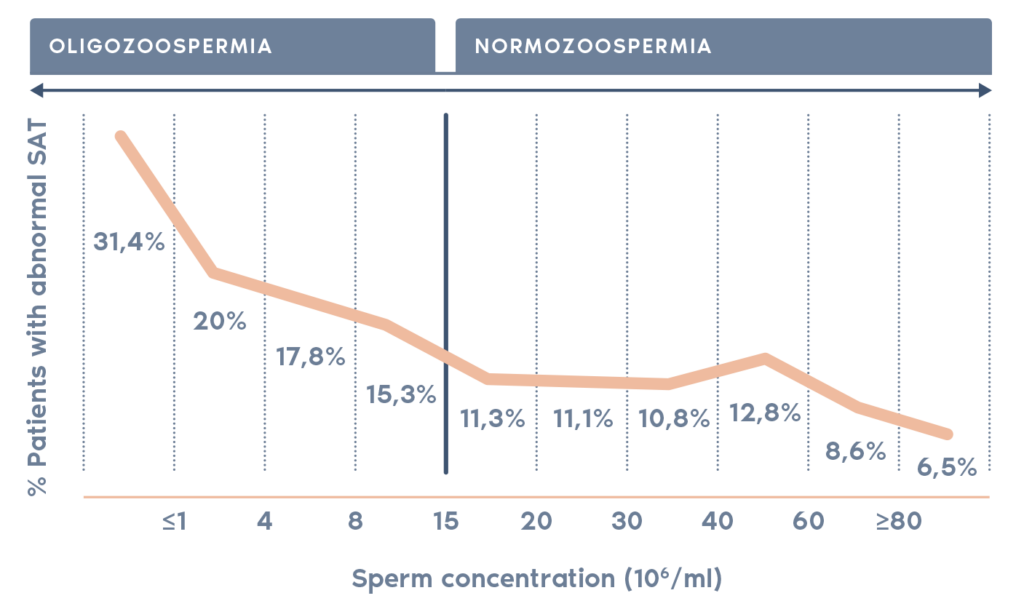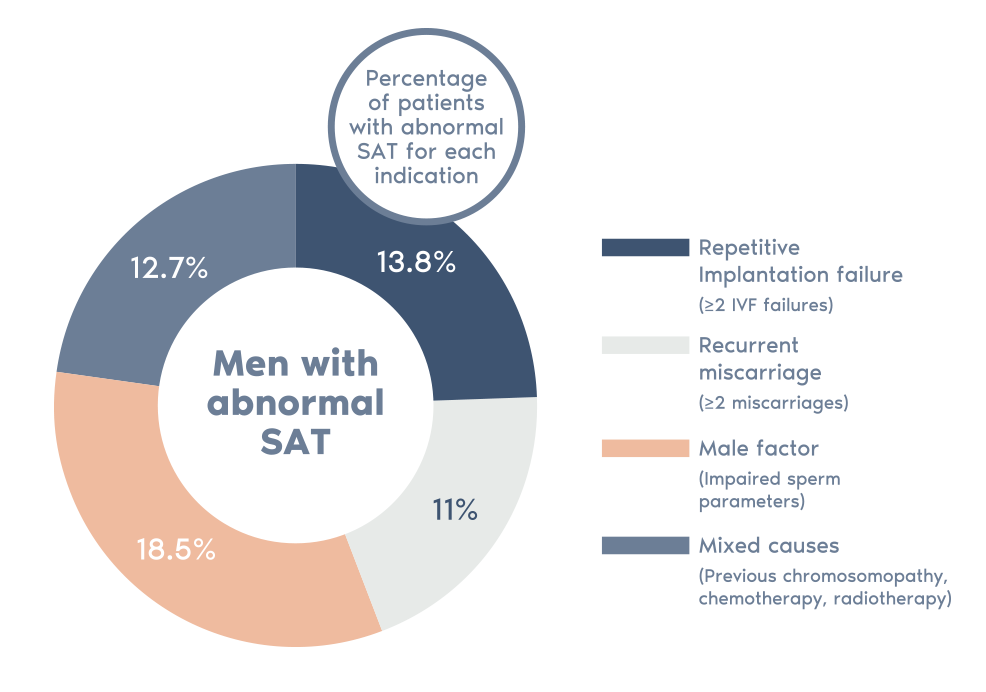What is SAT test?
- The Sperm Aneuploidy Test (SAT) is a diagnostic test to study the genetic etiology of male infertility.
- It allows for the evaluation of the presence of an abnormal number of chromosomes (aneuploidy and diploidy) in the sperm.
It analyzes the chromosomes that are frequently implicated in spontaneous miscarriages and the chromosomes that can lead to children affected with syndromes, like Down syndrome. (chromosomes 13, 18, 21, X and Y).
What is the procedure?
Why use SAT test?
Men with an abnormal SAT result conception may be impacted on three levels:
EMBRYO LEVEL
- Spermatozoa with sex chromosome abnormalities or abnormalities in chromosome 13, 18, or 21 would result in an aneuploid embryo which would have a reduced potential to implant.
Diploid sperm result in triploid embryos.Rodrigo et al., 2010
PREGNANCY LEVEL:
- An altered SAT result implicates a decreased pregnancy rate after ICSI and increased miscarriage rate.
Rubio et al., 2001.
OFFSPRING LEVEL:
- An altered SAT result implicates an increased risk for offspring with chromosomal imbalances (For example: Down syndrome, Klinefelter syndrome or Turner’s syndrome)





















